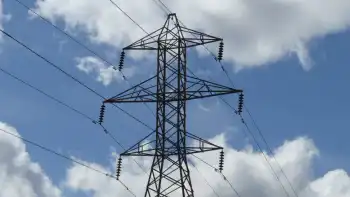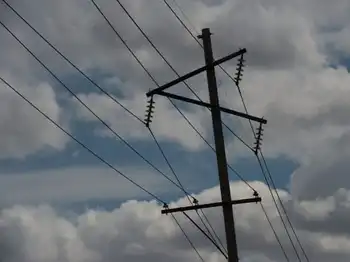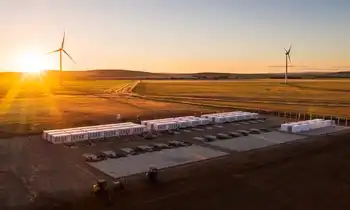Arab states race for nuclear power
The United States, Britain, France and Russia are competing for contracts in the nuclear energy bonanza that is emerging in the Middle East as Arab states seek to generate more power to feed their growing economies and to build desalination plants, a vital element in development plans as water resources shrink.
Saudi Arabia's minister of water and electricity, Abdullah bin Andul-Rahman al-Hussein, told the kingdom's al-Watan newspaper in late August that Riyadh was working on plans for its first nuclear plant.
Saudi Arabia and the neighboring United Arab Emirates signed preliminary agreements with the United States for nuclear technology in 2008.
In May, France's economy minister, Christine Lagarde, said Paris was close to finalizing a nuclear energy cooperation agreement with the United Arab Emirates. In 2007, France also pledged to help Morocco, a former colony, and Qatar, another of the Gulf states, to develop their nuclear programs.
The U.A.E. is the furthest along among the six member states of the Gulf Cooperation Council - which also includes Saudi Arabia, Kuwait, Oman, Qatar and Bahrain - although Riyadh's plans are accelerating.
French President Nicolas Sarkozy visited the U.A.E. in May to open France's first military base in the Gulf - and to promote a French consortium's bid to secure a $40 billion deal to build at least four, and possibly six, reactors.
The French consortium, which includes Areva, GdF Suez and Total, is the front-runner for the winner-takes-all contract.
Other bidders are General Electric of the United States with Hitachi of Japan, and the Korea Electric Power Corp. with Hyundai Engineering and Samsung C&T Corp.
The Gulf states are all major oil producers, Saudi Arabia is the world's leading exporter, and the U.A.E. is the third-ranked producer.
But they, and their fellow Arabs, are finding that their economic development is outstripping their power generation capabilities, hence the focus on nuclear energy.
In Egypt, energy demand is growing by 7 percent a year. Even the oil-rich Gulf states are suffering power cuts these days.
The U.A.E. hopes to have its first nuclear plant online by 2015, although industry sources say that may be way too optimistic. It takes on average eight years - and $4 billion - to construct a reactor plant.
Two years ago, there was little interest in nuclear energy around the Arab world. But now that's all changed - to a large degree because of what's happening in Iran.
Apart from the six Gulf states, Tunisia, Libya, Jordan, Egypt and even impoverished Yemen are also committed to pursuing nuclear energy programs.
"The rules have changes," King Abdullah II of Jordan recently told Israeli daily Haaretz. "Everybody's going for nuclear programs."
Egyptian President Hosni Mubarak and Russian Prime Minister Vladimir Putin signed a deal in 2008 that cleared the way for Russian involvement in building four nuclear power plants in the Arab world's most populous nation. The first, on the Mediterranean coast, is expected to cost $1.5 billion.
In August, Putin approved a draft plan for Russia, which is building Iran's first plant at Bushehr on the northern Gulf coast despite U.S. objections, to cooperate with Turkey to develop a nuclear power facility near its Mediterranean coast.
The Middle Eastern states say they do not seek to acquire nuclear weapons, as the Americans and their allies say Iran does.
But the United States and Israel, the only regional state to have nuclear arms, fear that some Arab states will eventually seek to develop uranium enrichment programs to counter Iran's allegedly clandestine efforts.
Egypt, Libya and Algeria were all suspected proliferation risks, with the help of China, Argentina, North Korea and others, at various times up until five years ago.
Israeli warplanes bombed a suspected nuclear reactor built by North Korea in Syria in September 2007.
The U.S. Congress has expressed considerable disquiet about Washington helping the U.A.E. because the emirates are key trading partners with Iran. The fear is that U.S.-supplied technology and know-how could find its way across the Gulf to the Islamic Republic.
Related News

Typical Ontario electricity bill set to increase nearly 2% as fixed pricing ends
TORONTO - Energy bills for the typical Ontario home are going up by about two per cent with fixed pricing coming to an end on Nov. 1, the Ontario Energy Board says.
The province's electricity regulator has released new time-of-use pricing and says the rate for the average residential customer using 700 kWh per month will increase by about $2.24.
The change comes as Ontario stretches into its eight month of the COVID-19 pandemic with new case counts reaching levels higher than ever seen before.
Time-of-use pricing had been scrapped for residential bills for much for the pandemic with a single price set…




